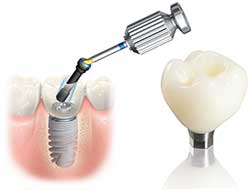Table of contents
Benefits, Problems of Dental Bridge, Partial/Full Denture
 There are several solutions for replacing missing teeth, but often there are significant problems in choosing dental bridge, partial denture, or full denture. Our Dental Implants Manhattan Center only uses the best quality dental implants from Straumann (Basel, Switzerland). It’s the largest and most advanced dental implant company in the world.
There are several solutions for replacing missing teeth, but often there are significant problems in choosing dental bridge, partial denture, or full denture. Our Dental Implants Manhattan Center only uses the best quality dental implants from Straumann (Basel, Switzerland). It’s the largest and most advanced dental implant company in the world.
Dr. Navid Rahmani, an internationally recognized, Board Certified Periodontist, is the country’s top dental implant specialist accepting patients in his Midtown Manhattan dental implants center.
Problems with Having a Dental Bridge
Dental bridges are still a popular option, but they are not always the best solution for replacing one or more missing teeth in the same area of your mouth. If you opt for a bridge, your dentist will need to remove a substantial structure from the teeth adjacent to the gap. These teeth have to be crowned to support the bridge.
Crowns
The crowns are attached to the replacement teeth to create a strong unit. This is not a good solution if these teeth are healthy and strong, nicely shaped, and don’t need to be crowned. Once that structure is removed, it can only be replaced artificially. Even if you subsequently choose to have a dental implant, you will still need to protect these teeth with crowns.
Crowning healthy teeth increases the risk of infection and decay developing underneath the crowns. It also places the teeth that have been crowned under additional stresses as they support the replacement teeth.
Problems with Having a Partial Denture
Partial dentures are a cost-effective way to replace missing teeth but are far from perfect.
They are kept in place with clasps that fit around existing teeth and which can be highly visible. Often teeth will need to be modified to fit these clasps, and they can come under substantial pressure whenever you bite down on the partial denture. The resting of the partial and constant force that it exerts causes more loss.
Patients wearing a partial denture for many years also realize that their jaw bone shrunk in width and height. Shrinking the bone becomes an issue when they want to have a dental implant but have lost a substantial volume of the jaw bone.
Problems with Having a Full Denture
A complete denture replacing all the natural teeth on your upper or lower arch is perhaps the most problematic solution of all.
People with complete dentures often struggle to keep them in place, especially after wearing them for a few years, and as bone loss occurs, retention is even more difficult.
It can be awkward to eat and speak clearly with dentures, and they do nothing to help oral health. They can easily trap food and plaque and often rub on the gums, creating sore spots. The pressure placed on the gums and underlying bone causes the gums and the bone to shrink or reabsorb more quickly, making denture retention even worse.
Eventually, the bone resorption can be so substantial to cause a loss of dimension between the upper and lower jaw, causing a prematurely aging collapse of facial features.
Benefits of Choosing Dental Implants
When you choose to have dental implants, you are helping to protect your dental health. Any existing natural teeth can remain whole and healthy as there is no need to adapt them in any way. They will not be placed under any additional stress by having unsightly clasps fitted around them. Instead, they will benefit from dental implants that will help keep them in place, preventing them from drifting out of position and affecting your bite.
Free Implants Consultation by Dr. Navid Rahmani at the NYC Dental Implants Center: ☎ 1-212-256-0000
Protective Effect on Your Jawbone
One of the main reasons you should consider having dental implants is their protective effect on your jawbone.
Closely replicating natural tooth roots, dental implant posts help preserve your jawbone, preventing resorption by providing essential stimulation to the bone, making sure your body knows it is necessary to continue renewing old bone cells.
Implants prevent loss of height and dimension between your upper and lower jaw and help ensure your remaining teeth are stable and strong.
- No shifting or moving
- Eat a greater range of foods
- Easy to chew foods
- Able to speak clearly
- Dental implants can never decay
Shifting. With dental implants, your replacement teeth are held firmly in place. There is no danger that they could shift or move out of position, making it easier for you to eat.
Eating. Eating a greater range of foods can benefit your overall health as often soft, easy to chew foods may be nutritionally deficient.
Speaking. Speaking clearly and without fear of your teeth moving around can help you enjoy social occasions once more, something that is very important for general well-being.
Tooth decay. Your dental implants can never decay as this will is one of the most common causes of failure of crowns and bridges as the junction where the crown meets the tooth can begin to fail, allowing decay-causing bacteria to get into the tooth.
Above all, dental implants represent the most advanced way to replace missing teeth, offering a longer-lasting solution that should last for many years with proper dental care.
If you have any questions about the benefits of dental implants, or to make an appointment, please call our Midtown Manhattan dental implants center:
NYC Dental Implants Center
121 East 60th St Ste 6C2
New York, New York 10065
(60th St. btw Park Ave / Lex Ave)
212-256-0000
Consultation
